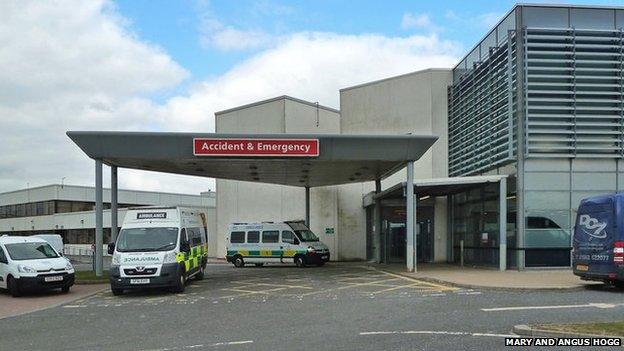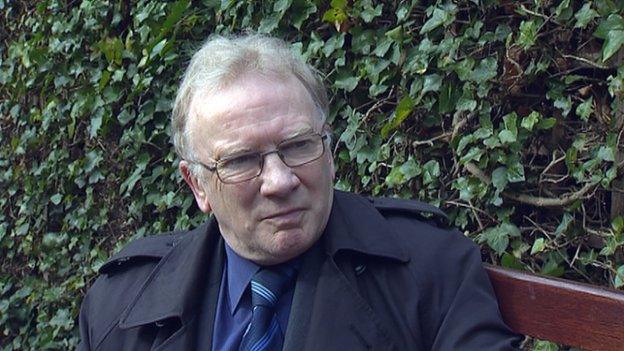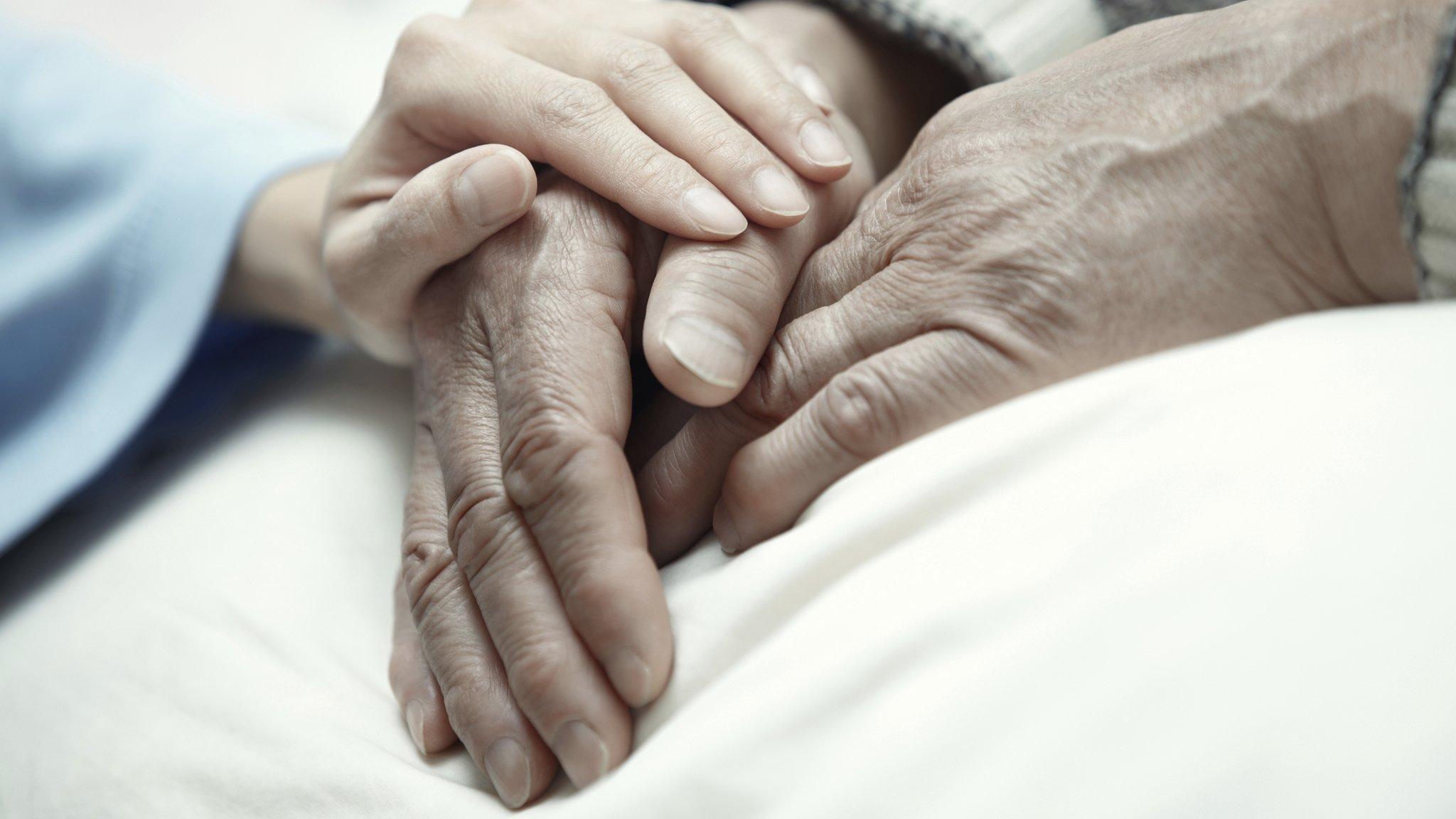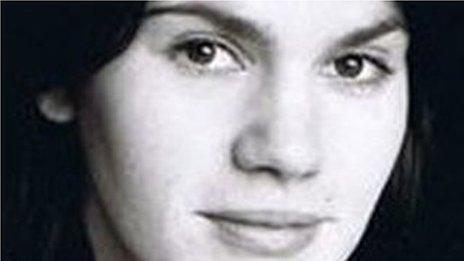Call for more NHS death prosecutions
- Published
Ian and Janette Black have called for an inquiry into how the NHS operates the Health and Safety at Work Act
More Scottish health boards should be prosecuted when preventable deaths occur or patients are harmed, the parents of a girl who died as a result of health board failings have said.
Janette and Ian Black are supporting a campaign by a former health regulator.
Roger Livermore believes dozens of prosecutions should have been pursued under health and safety laws.
But, the head of Scotland's Patient Safety Programme said the laws were being applied appropriately.
Nicola Black took her own life after being admitted to a mental health ward at Crosshouse Hospital in Kilmarnock in 2010. NHS Ayrshire and Arran was eventually prosecuted last summer and fined £50,000 for health and safety breaches in relation to her death.
Speaking publicly for the first time, her parents told BBC Scotland the prospect of a criminal prosecution was only raised two years after their daughter's death.

NHS Ayrshire and Arran was prosecuted after Nicola Black took her own life at Crosshouse Hospital
Mrs Black said: "Nicola died unexpectedly, in a hospital where we would have expected her to be safe and secure.
"We were thrown into a legal process which we knew little about and were forced to challenge and chase along.
"It was only when the case was transferred to a specialist unit in Glasgow - the Serious Incident Unit - that we were contacted and told it was possible that there would be a Health and Safety at Work prosecution."
Her husband Ian added: "There needs to be a public inquiry into the NHS and how it operates the Health and Safety at Work Act.
"The NHS in Scotland has to comply with legislation that covers the whole of the UK."
'Avoidable harm'
Roger Livermore is a former Crown prosecutor for the Health and Safety Executive with 35 years' experience.
He claimed the Health and Safety at Work Act means the NHS has a duty of care towards its patients, but the legislation is not being enforced.
Mr Livermore added: "There's a never-ending stream of avoidable harm. There were further cases at Ayrshire and Arran, including what looks like another avoidable suicide.
"There are critical incidents reports from all over Scotland which show serious harm - often fatalities - which, if you look at it from the perspective of the law which does apply, they could, and should, have been prevented."
Mr Livermore has examined 85 incidents that occurred at NHS Ayrshire and Arran and which were released under Freedom of Information legislation to a nurse-turned-whistleblower, Rab Wilson.

Roger Livermore has claimed health and safety legislation was not being enforced properly
"NHS Ayrshire and Arran itself provides evidence that the reasonable steps to protect patients weren't actually taken", Mr Livermore said.
"Out of the 80-odd reports that Ayrshire and Arran have produced, about 50 of those would have been subject to prosecution.
"They met the criteria for a prosecution under the Health and Safety at Work Act. In practice there has only been that one prosecution, in relation to Nicola Black."
But Prof Jason Leitch, the clinical director of NHS Scotland who is now in charge of the Scottish government's innovative Patient Safety Programme, disagreed.
He said: "Health and safety legislation exists for a very good reason and applies in all workplaces, but what it doesn't apply to is the kind of individual patient harms which occur in healthcare systems.
"I'm very confident we have layered levels of scrutiny which deal with those issues competently."
'Blame culture'
Prof Leitch argued a "blame culture" would set back progress that has been made to improve safety in the NHS, and that it was better to have a system which encourages lessons to be learned internally.
He added: "The literature says that external motivators get you a fear culture, temporary change and completely hampers any level of innovation.
"It should be used - but sparingly. It should exist for people who deliberately harm people. Internal motivators capture why workers went into these workplaces in the first place - to care for people - and creates a just culture not a blame culture.
"This, in the end, leads to sustainable change. All the high-performing healthcare systems in the world concentrate on this element for motivation."
Although legislation regarding health and safety is controlled by Westminster, Scotland is the only part of Britain where the Health and Safety Executive does not have the power to bring its own prosecutions.
A file is passed to the Crown Office, which decides whether criminal charges should be brought. The procurator fiscal decided there was no evidence of criminal offences in any of the other incidents which occurred at NHS Ayrshire and Arran.
Last week, an investigation by the Royal College of Nursing found that the same problems in elderly care were being highlighted time after time by inspectors. It said scrutiny by Healthcare Improvement Scotland had not resulted in improvements.
Section 3(1) of the Health and Safety at Work Act 1974 states that: "It shall be the duty of every employer to conduct his undertaking in such a way as to ensure, so far as is reasonably practicable, that persons not in his employment who may be affected thereby are not thereby exposed to risks to their health or safety."
A Crown Office spokesperson said: "The Crown note the material received from Mr Livermore and will give very careful consideration to the content."
NHS Ayrshire and Arran declined to comment.
- Published12 March 2015

- Published18 August 2014
